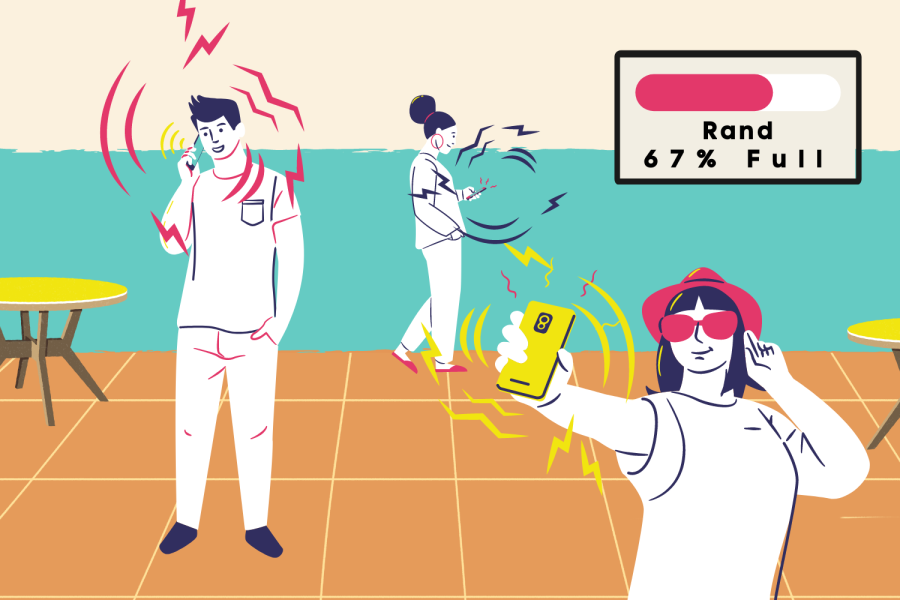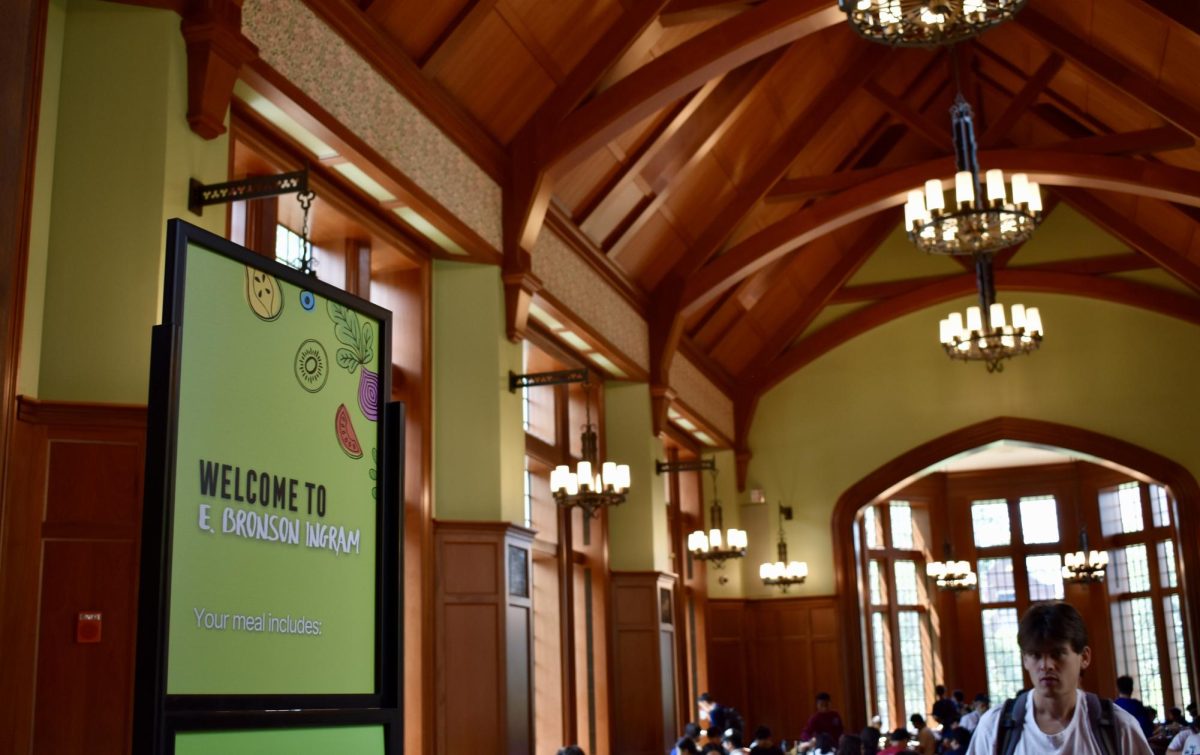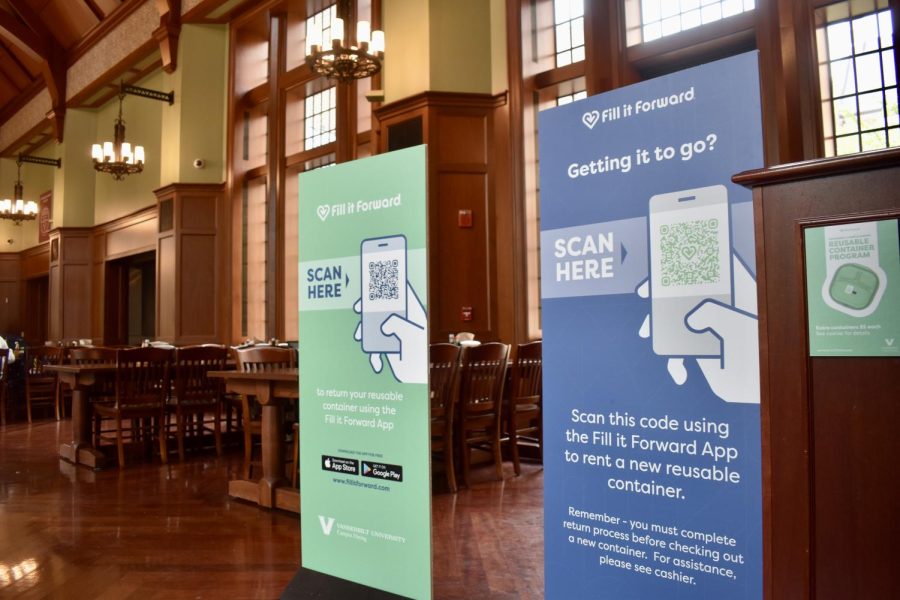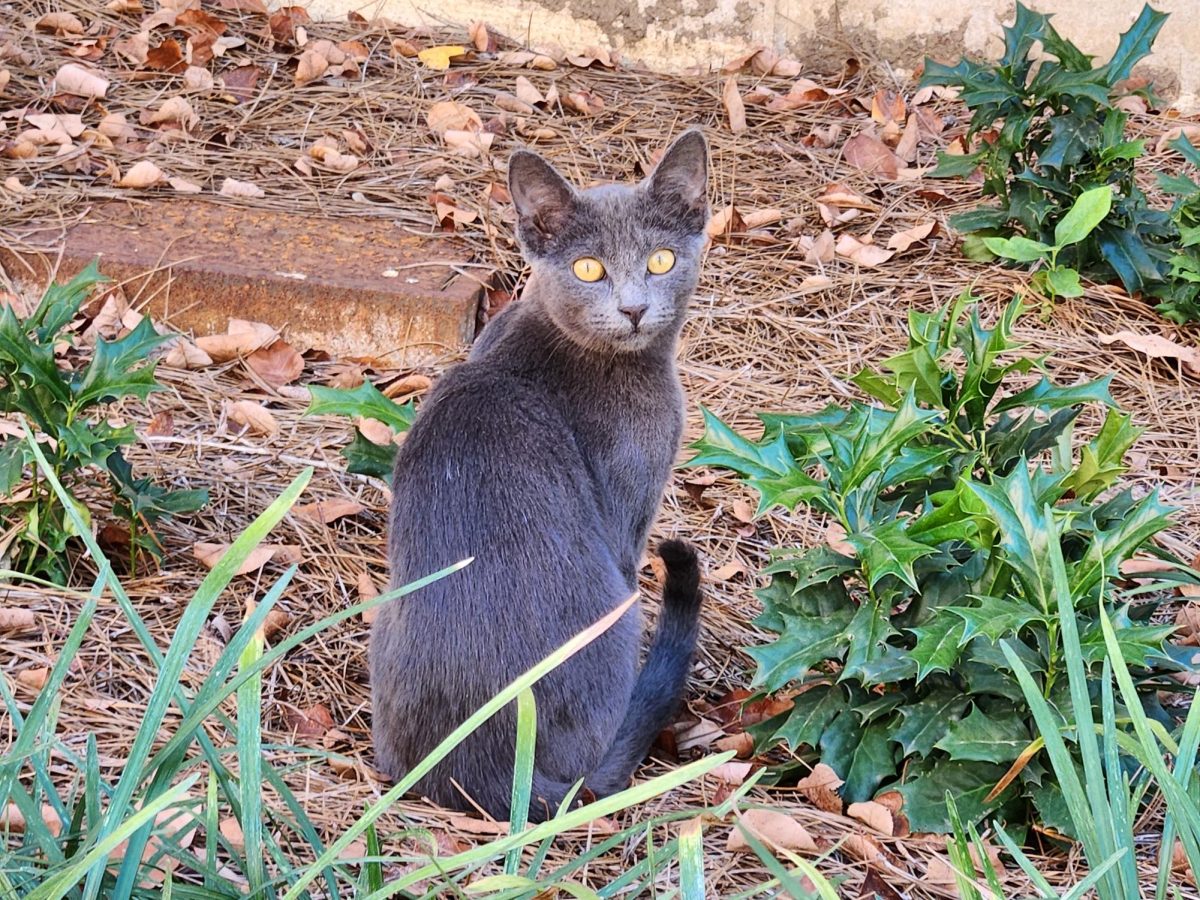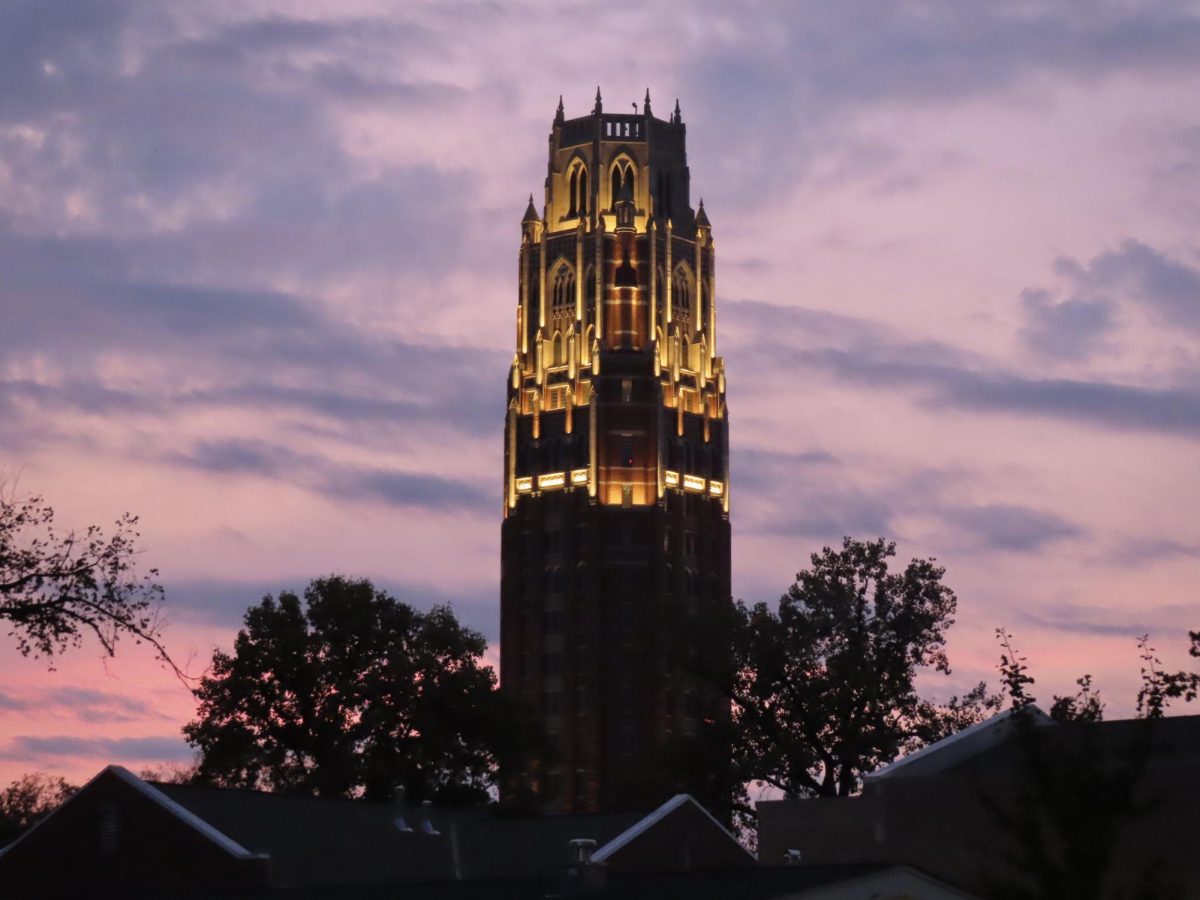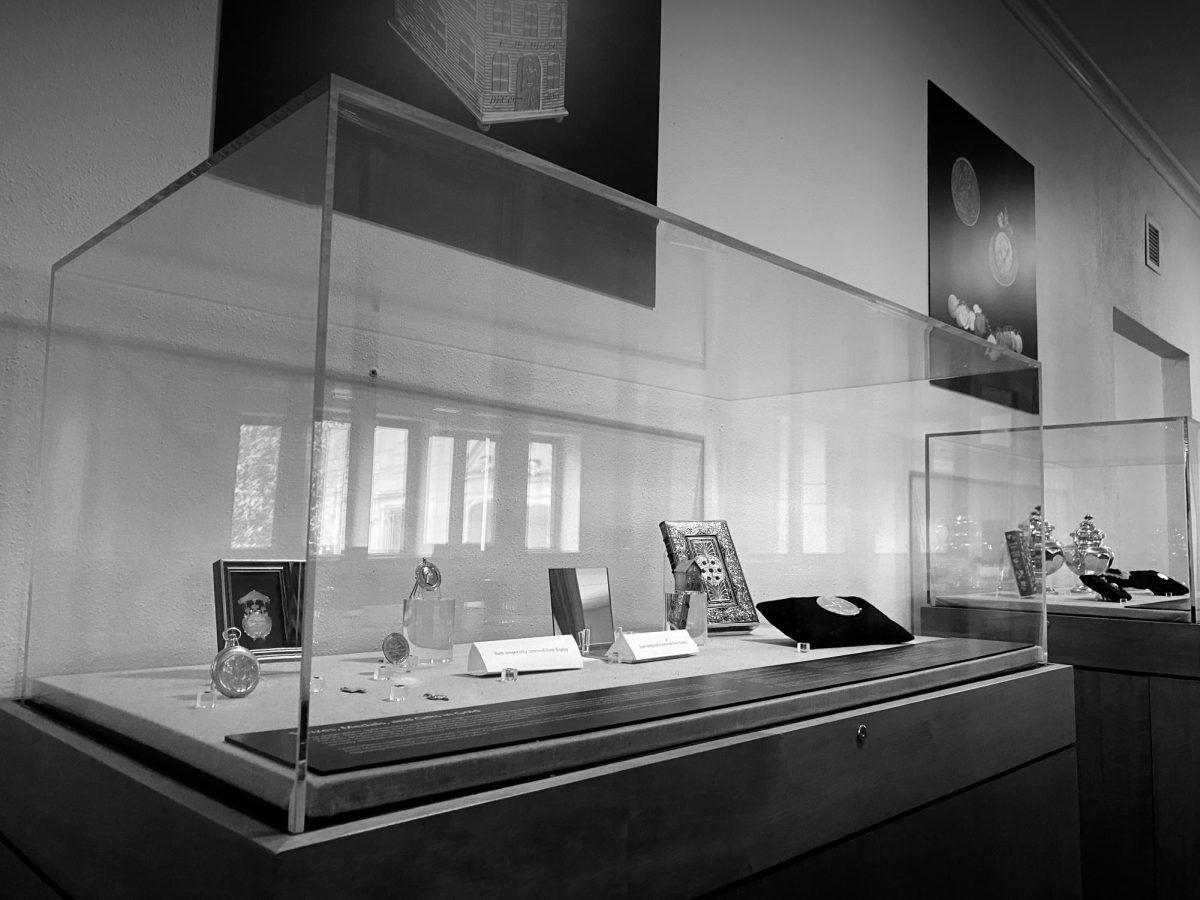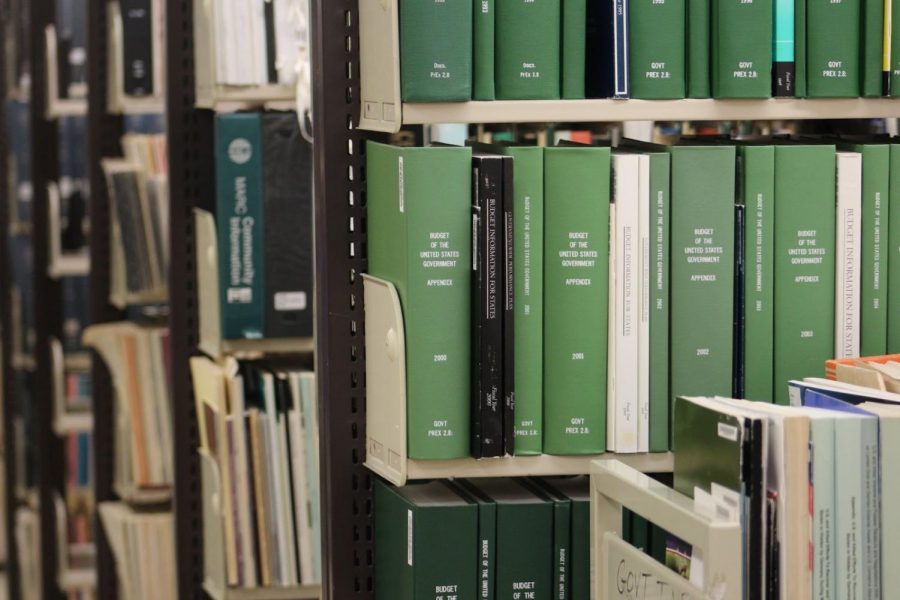Vanderbilt implemented Occuspace technology on campus Sept. 8 which allows students to check the occupancy of select dining halls and study spaces through the dining website or Waitz app.
The live data feature of the application shows the current occupancy, predictions of occupancy for an hour in the future and peak hours with comparisons to the previous week. Along with the percentages, each space is categorized as “not busy,” “busy” or “very busy.”
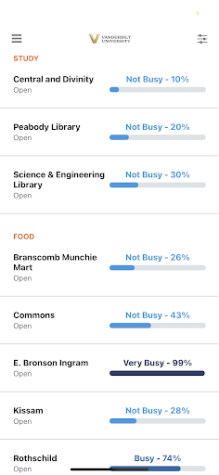
The “Waitz” app, showing occupancy data for libraries and dining halls. (Hustler Staff/Rhea Patney)
Spaces available for tracking are Branscomb Munchie Market, Commons Dining Hall, EBI Dining Hall, Rothschild Dining Hall, The Pub, Zeppos Dining Hall, Kissam Kitchen, Local Java and Rand Dining Hall, as well as Central, Divinity, Peabody and Stevenson Libraries. More data showing occupancy based on floors and sections are also currently available for all four libraries.
“The Occuspace sensors detect WiFi and Bluetooth signals from electronic devices to estimate the number of occupants in the building and do not collect any personally identifiable information,” a university representative said in an email to the Hustler. “Students can now get live updates regarding the dining halls’ capacity so they can better plan where they want to eat before leaving their dorm room or house.”
According to Occuspace, the technology maintains 90% accuracy within its data and takes into account people using multiple devices. First-year Ryan Mahoney said the app is useful, but she wishes some features showed attendance numbers rather than percentages to better gauge how busy each space is.
“I think Waitz is super helpful,” Mahoney said. “I like to check it before going to study or eat.”
On the other hand, first-year Bella Holtz was unaware the new technology was installed and did not feel like the university advertised the changes well.
Other institutions such as Columbia University, Rice University and Purdue University use this technology as well. Sophomore Georgette Seeger said she thinks the university could potentially use the Occuspace data to make helpful changes to the dining system that would reduce wait times.
“It could be helpful if campus dining used the information to see what dining halls are most popular and put more employees in those or try to come up with new ways to make wait times less long at the busy dining halls,” Seeger said.

